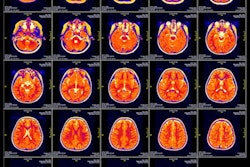Vanderbilt University Medical Center (VUMC), Vanderbilt University, and University of Pennsylvania researchers received a $3.5 million grant from the National Institutes of Health (NIH) to collaborate on the development of new brain network-based tools for epilepsy surgery decision-making.
VUMC said current clinical tools guiding surgical decisions are limited, in part because of an incomplete understanding of brain connectivity patterns in focal epilepsy. The newly funded project will combine MRI structural and functional connectivity analyses with intracranial recordings and neurostimulation measures. The goal is to develop hypothesis-driven and machine learning-based analyses to aid physicians in patient selection, surgical outcome prediction, and localization of surgical targets.
The five-year NIH grant enables investigators from neurosurgery, neurology, radiology, biomedical engineering, electrical and computer engineering, and computer science to link their expertise. The project will build on previous work.
“Our traditional tools to determine where seizures start and to guide which surgery is best for an individual patient are imperfect and usually do not consider the brain network alterations that lead to epilepsy. Our goal is to develop novel network-based measures that can be applied broadly at epilepsy centers to guide surgical decisions and improve outcomes,” said principal investigator Dario Englot, MD, PhD, an associate professor of neurological surgery, who leads the Brain Imaging and Electrophysiology Network (BIEN) laboratory at VUMC.



.fFmgij6Hin.png?auto=compress%2Cformat&fit=crop&h=100&q=70&w=100)




.fFmgij6Hin.png?auto=compress%2Cformat&fit=crop&h=167&q=70&w=250)











